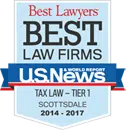Criminal Investigation from IRS Reveals $2.3 Billion in Tax Fraud The Internal Revenue Service this…
CARES Act 1-Year Anniversary Continues With IRS Criminal Investigation Into COVID-19 Fraud
CARES Act Fraud: IRS-CI Encourages To Report COVID-19 Scams Offered Through The Coronavirus Aid, Relief, and Economic Security Act
The Coronavirus pandemic has caused significant financial hardship for a lot of people, and several initiatives have been passed to try to offer some financial assistance to the people who need it. While these payments have been an enormous help to some, others have taken advantage of the financial assistance being offered, taking money to which they are not entitled. The IRS continued to be committed to investigating and prosecuting these people.
IRS Intensifies Investigation On CARES Act Fraud
On the first anniversary of the Coronavirus Aid, Relief and Economic Security (CARES) Act, the IRS is publicly committing to continued investigation of fraud concerning the aid offered through the act. The Criminal Investigation Division of the IRS, known as the IRS-CI, has already been investigating cases involving Economic Impact Payments, the Employee Retention Credit, and the Paycheck Protection Program (PPP), among others. So far, the IRS-CI has investigated more than 350 cases involving tax crimes and money laundering. Nationwide, these cases total more than $440 million, and they involved crimes including misuse of tax credits and fraudulently obtained loans.
“We have investigated cases of criminals flaunting stolen money to buy fancy cars, boats and pay for luxury apartments while families and businesses struggle to make ends meet,” Jim Lee, Chief of IRS Criminal Investigation, said in a press release. “IRS-CI special agents have done an extraordinary job identifying millions in stolen money, and our work is far from over. We will not cease until every fraudulently obtained dollar is accounted for and the individuals behind the schemes are prosecuted to the fullest extent of the law.”
The CARES act became law on March 27 of last year. It was passed to provide emergency assistance to those suffering financial setbacks as a result of the pandemic. For example, one program provides loans to small businesses that can later be forgiven. The loans are intended to help businesses keep employees on staff and to pay for other expenses while the business experiences a drop in revenues. Up to $349 billion was approved for the Paycheck Protection Program. In April 2020, another $300 billion was approved, and then in December 2020, another $284 billion was approved.
Paycheck Protection Program (PPP): Fraudulently Obtained Loans
Under the PPP, businesses can get loans with an interest rate of just 1 percent that they have to pay back in two to five years. The loan money must be used specifically for payroll costs, rent, interest on a mortgage, or utilities. If the business owner uses the money on these categories within a certain time frame and also use a certain percentage of the loan on payroll, they can get the loan completely forgiven. While the program has helped many businesses in legitimate need, many people have also fraudulently applied for the funds or misused them, and the IRS is cracking down on those and other offenders.
In its quest to crack down on abuse of these and other programs introduced under the CARES Act, the IRS-CI is encouraging the public to share information about suspected fraud or abuse. People can report these suspected cases on IRS.gov, where they can also find information about potential tax schemes. The agency is frequently updating its page on the coronavirus and economic stimulus programs.
Some of the economic stimulus programs introduced under the CARES Act have created confusion for those enrolled in them. For example, some businesses who have received PPP loans have expressed confusion about how the funds are to be used and how to qualify for loan forgiveness. If you are among them, you could find yourself on the wrong side of the IRS, not because you intended to commit fraud but because you weren’t aware of the rules. But ignorance of the law is not a defense of it.
Call Professional Tax Litigation Attorneys In Las Vegas, NV
If you have been notified by the IRS that you are being investigated over funds under the CARES Act, or if you have been assessed penalties, call Silver Law today. Our tax attorneys may be able to represent you in litigation or negotiations with the IRS. We work to help clients who have been assessed penalties or are being charged for a number of tax issues, including foreign tax reporting, innocent spouse relief, and more. Contact us today to schedule a consultation with a tax attorney and learn more about your legal rights and options.
Arizona Location
7033 E. Greenway Pkwy, Ste 200
Scottsdale, AZ 85254
Office:480-429-3360
Email: lchapman@silverlawplc.com
Website: taxcontroversy.com
Nevada Location
410 South Rampart Blvd, Suite 390
Las Vegas, Nevada 89145
Office: 702-318-7130
Email: lchapman@silverlawplc.com
Website: taxcontroversy.com


















Leave a Reply
You must be logged in to post a comment.